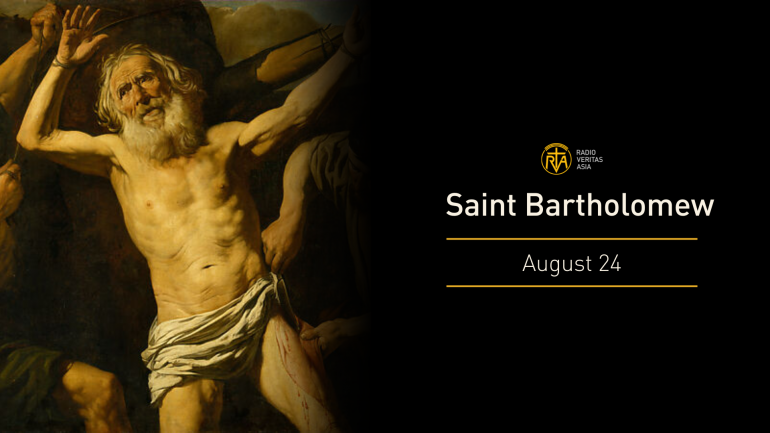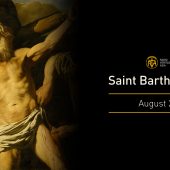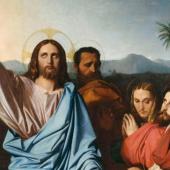Saint Bartholomew: the Apostle, 'God has given'

Saint Bartholomew, also known as Nathanael, was one of the twelve apostles of Jesus, whose feast day is observed on August 24 every year in the Catholic Church.
Scholars say he hailed from Cana in Galilee and was martyred in Armenia for converting Polymius, King of Armenia, to Christianity.
The account of his death by flaying became very popular. Among others, he is a patron saint for skin diseases, shoemakers, plasterers, neurological diseases, leatherworkers, dermatologists, butchers, and bookbinders.
While his name is said to have reference to the name of his father, bar Talmay or "son of Talmay", Bartholomew has been associated with Nathanael, which means "God has given".
According to Pope Benedict XVI, there is no special information about Bartholomew, but he appears in the lists of the Twelve but is never central to any narrative.
He is mentioned in the three Synoptic Gospels in Matthew 10:1-4, Mark 3:13–19, and Luke 6:12–16, and in the Gospel of St. John, he is identified as Nathanael in John 1:45–51 and 21:2. He is also mentioned in the Acts of Apostles in Acts 1:13–14.
Since he came from Cana, he is believed to have witnessed the great "sign" that Jesus worked in that place (cf. John 2:1–11).
In the Gospel of John, Nathaniel is introduced as a friend to St. Phillip, who was also an apostle of Jesus. Phillip introduced Nathaniel to Jesus, who told him that he was a true child of Israel with no duplicity in him but had an undivided heart with pure intentions and was open to reality and to see the truth.
Philip told Nathanael that he had found "him of whom Moses in the law and also the prophets wrote, Jesus of Nazareth, the son of Joseph" (John 1:45). Nathanael's response was strongly biased: "Can anything good come out of Nazareth?" (Jn 1: 46).
After this, Jesus introduces himself, and Nathaniel at once believes.
Bartholomew’s attitude is seen to emphasize God's freedom, he chose to be where he is least expected. Although Jesus was not exclusively "from Nazareth" but was born in Bethlehem (cf. Mt 2:1; Lk 2:4),
Philip tells Nathanael, "Come and see!" (Jn 1: 46). A first-hand experience of the knowledge of Jesus is important in the same way that another person’s testimony is also valuable. Here is the invitation to have a personal, close, and deep relationship with Jesus.
Benedict XVI, in his General Audience on October 4, 2006, said, "According to information handed down by Eusebius, the fourth-century historian, a certain Pantaenus is supposed to have discovered traces of Bartholomew's presence even in India (cf. Hist. eccl. V, 10, 3)."
St. Bartholomew's relics are venerated in Rome in the church dedicated to him on the Tiber Island, where they are said to have been brought by the German Emperor Otto III in the year 983.
Radio Veritas Asia (RVA), a media platform of the Catholic Church, aims to share Christ. RVA started in 1969 as a continental Catholic radio station to serve Asian countries in their respective local language, thus earning the tag “the Voice of Asian Christianity.” Responding to the emerging context, RVA embraced media platforms to connect with the global Asian audience via its 21 language websites and various social media platforms.













